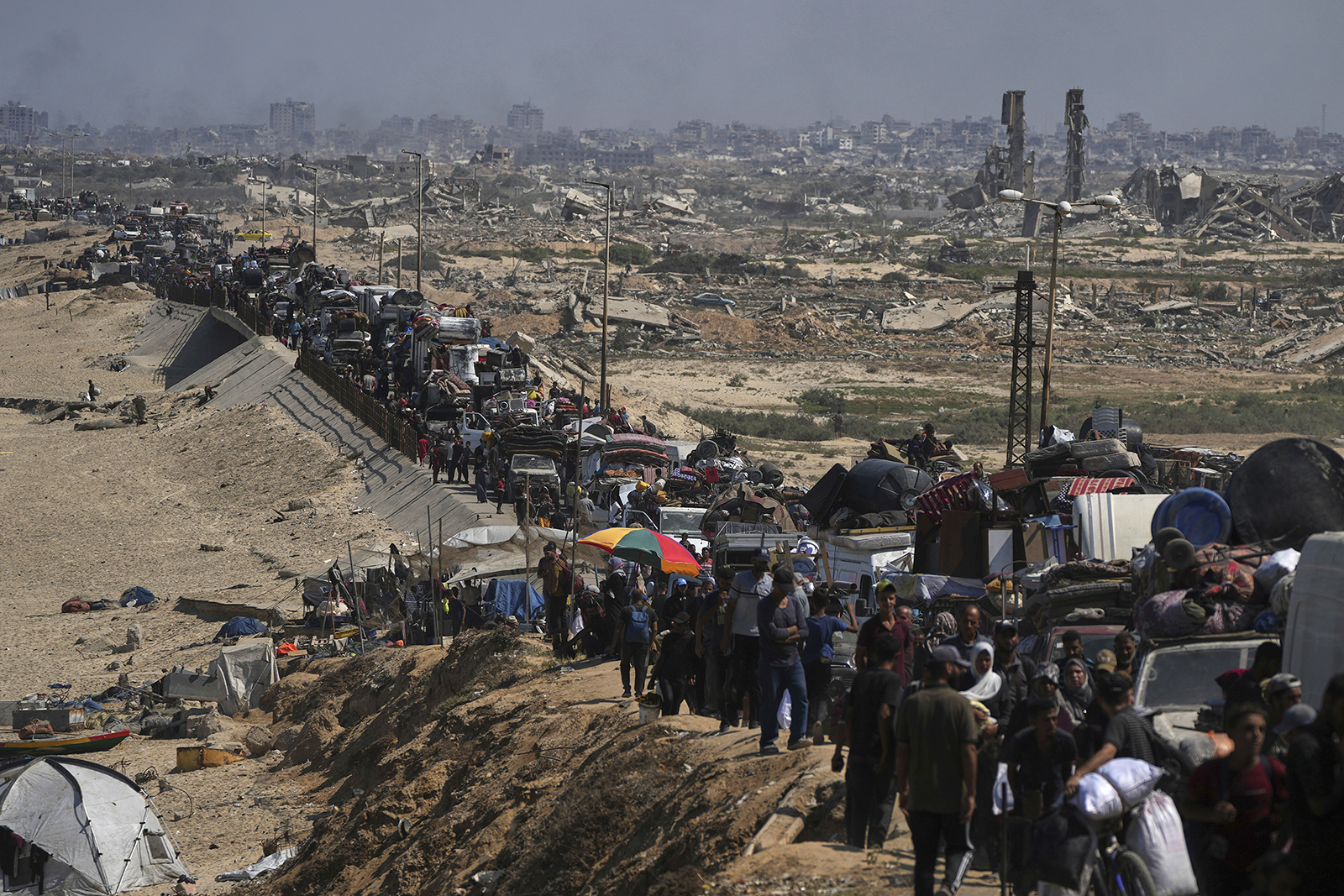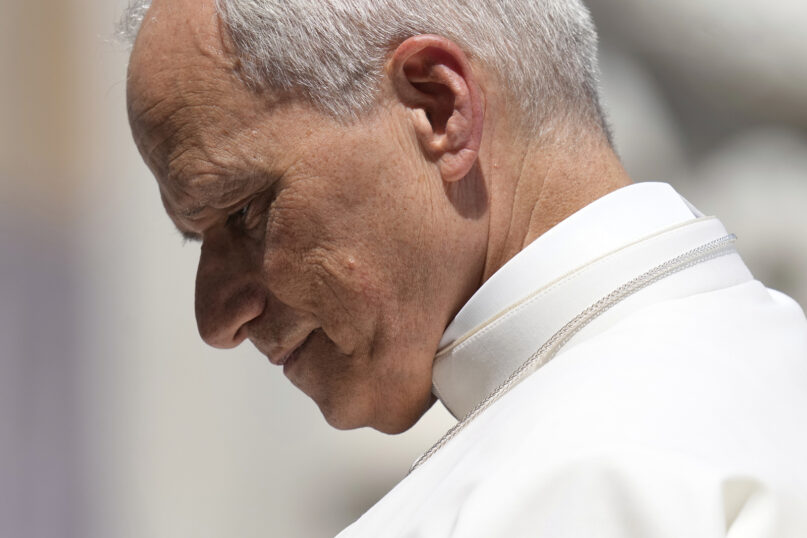
VATICAN CITY (RNS) — Pope Leo XIV made a heartfelt appeal for a ceasefire in Gaza in St. Peter’s Square on Wednesday (Sept. 17) as Israeli tanks advanced in Gaza City, displacing hundreds of thousands of civilians.
“I express my profound closeness to the Palestinian people in Gaza, who continue to live in fear and to survive in unacceptable conditions, forcibly displaced — once again — from their own lands,” Leo told the crowd gathered in the square.
About 1 million Palestinians lived in the Gaza City vicinity before Israel warned them to leave ahead of attacking. The Israeli military estimated 350,000 people left the city as a result, The Associated Press reported Wednesday, while the United Nations estimated about 238,000 Palestinians evacuated over the past month. Hundreds of thousands are thought to remain in Gaza City.
More than 65,000 people have been killed in Gaza during the war that began after Hamas’ Oct. 7, 2023, attack on Israel, according to the Hamas-run Gaza Health Ministry.
The pope noted God’s commandment of “Thou shalt not kill” and underlined the “inviolable dignity” of every human being. “I renew my appeal for a ceasefire, the release of hostages and a negotiated diplomatic solution, fully respecting international humanitarian law,” he said.
Leo invited faithful to join in prayer “that a dawn of peace and justice may soon arise.”

Pope Leo XIV leaves after his weekly general audience in St. Peter’s Square at the Vatican, June 4, 2025. (AP Photo/Gregorio Borgia)
The pope’s comments follow his first official interview with the Crux Catholic online newspaper on Sunday, in which he discussed the Holy See’s role in promoting peace and negotiation in the international sphere. In the interview, he said dialogue and relationships are the only hope for durable peace, while noting a weakening power of multilateral organizations, such as the United Nations, in brokering peace.
Leo has made appeals for peace in Gaza since his first Sunday address as pope in May, during which he called for an immediate ceasefire. He has repeated his call for a peaceful resolution to the conflict, including the return of all hostages taken from Israel and respect for international law, many times during private and public events.
He spoke with Palestinian Authority President Mahmoud Abbas in July and has maintained contact with the Palestinian ambassador to the U.N. and peace activists. The pope also talked with the parish priest of the only Catholic church in Gaza, the Holy Family Church, in September after it was accidentally targeted by Israeli strikes in July that resulted in the deaths of three people sheltered there. Several, including the priest, were injured.
Leo has also met with Israeli President Isaac Herzog twice since becoming pope, during which he discussed the “tragic” situation in Gaza and the importance of promoting religious freedom in the Holy Land. While meeting with the Israeli president, the pope also reiterated the Holy See’s support for a two-state solution, meaning the peaceful coexistence of a Palestinian state alongside the Israeli state with Jerusalem accessible to those of all religions.
The pope’s appeals have become increasingly adamant as the humanitarian situation continues to worsen in the Holy Land. On Tuesday, the U.N. Independent International Commission of Inquiry concluded Israel has committed genocide in Gaza, though the body does not speak for the U.N. as a whole. Leo’s predecessor, Pope Francis, called for a careful investigation into claims of genocide in Gaza in a 2024 book.
The new pope has made peace a central mission of his papacy. Speaking to cardinals shortly after his election in May, he said he chose the name Leo in honor of Pope Leo XIII, who authored the encyclical “Rerum Novarum” (On Revolutions) to address the challenges facing a changing society amid the Industrial Revolution. Leo’s pontificate is already positioning itself to speak to the troubles facing the world today, from the threat of war to a loneliness pandemic and the potential dangers of artificial intelligence. On Wednesday, he also commented on the noise and distractions in modern societies.
“We struggle to stop and rest. We live as if life were never enough. We rush to produce, to prove ourselves, to keep up,” he said. “But the gospel teaches us that knowing how to stop is an act of trust that we must learn to perform.”
